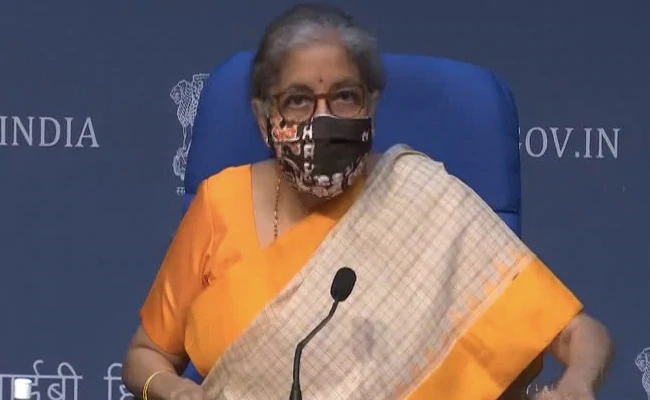Nirmala Sitharaman To Present Budget Tomorrow February 1, 2021

[ad_1]
The Finance Minister has raised hopes by stating that it (Budget) will “be a Budget like never before.”
Finance minister Nirmala Sitharaman will present the Budget in Parliament on Monday, February 1. The budget comes at a time when the country is facing a once-in-a-lifetime health crisis. The country’s gross domestic product (GDP) contracted by 23.9 per cent in the first quarter of the financial year and according to the World Bank, the economy is estimated to contract by 9.6 per cent in fiscal year 2020-21, reflecting a sharp drop in household spending and private investment. The World Bank, however, projected economic growth to recover to 5.4 per cent in 2021. The Finance Minister has raised hopes, going into the Budget event, by stating that it will “be a Budget like never before.”
This year’s Budget will be unique as it will be paperless, in a significant break from tradition, due to the Covid 19 pandemic. This is the first time in the history of independent India that budget papers will not be printed, so as to minimize the possibility of social interaction and maintain social distancing norms.
Expectations are high that the government will boost economic revival by focussing on infrastructure, healthcare, agriculture, rural economy, MSMEs, credit growth and sectors impacted by the Covid-19 pandemic and lockdown restrictions. The government has already unveiled a slew of measures in the past 10 months, under the Aatma Nirbhar Bharat initiative, to support the faltering economy. Yet, concerns persist that the finance minister may impose a cess on corporate earnings to shore up the government’s coffers.
From the markets point of view, the budget will be considered market-friendly if the government does not introduce a Covid cess and does not increase taxes such as Securities Transaction Tax and long-term capital gains tax.
Meanwhile, Ms Nirmala Sitharaman tabled the Economic Survey 2020-21 in Parliament on Friday. The Economic Survey forecasted a “V-shaped” recovery for the Indian economy and real GDP growth of 11 per cent in 2021-22, on the back of the roll-out of a massive vaccination drive. It highlighted that faced with unprecedented uncertainty at the onset of the pandemic, India focused on saving lives and livelihoods by taking short-term pain (of lockdown) for long-term gains. It emphasised the need to reduce the economic policy uncertainty in the country in order to foster a favourable investment climate.
[ad_2]
Source link


